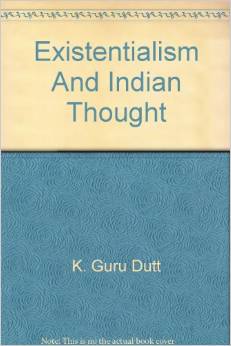
The author has here aimed at eliciting the relationship between Existentialist ideas and some aspects of Indian thought.
In the first two chapters, which briefly review modern Existentialism and its background, the analogies and correspondences
have been just indicated by Sanskrit terms juxtaposed in brackets. Their fuller implications have been examined in the third
and last chapter: with what success, it is for the reader to judge. It is hoped that the transliteration of Sanskrit is
sufficiently clear for ordinary purposes, although it may not satisfy the demands of meticulous scholarship.
Notes and thoughts while reading:
"The completely self-centered individual, shut up within himself, is, in Kierkegaard's eyes, the truly demoniac" (p 14)
"The curse of routine being is the desire for possession. Despair and anxiety are diseases caused by possessiveness.... The sage
does not possess knowledge of being, he is identical with it. " (p 54) This is regards to Marcel.
"[Marcel] describes the modern world as a functionalized world in which man is at the mercy of technics. But technics are incompatible
with the fundamental nature of being. The soul of technics is the activity of verification which ends by ignoring presence - that
inward realization of presence through love which infinitely transcends all possible verification because it exists in an immediacy
beyond all conceivable mediation... [Presence] is a grasp on oneself which is also a relaxation and abandon" (p 56)
"Etymologically, too, the word "existence" signifies: that which stands out - ex-sistet - from the background" (p 68) (Needs to be fact checked)
I would like to look more into the Siva - Satki dichotomy referenced near the end of the book. Possibly more to be written.
© JKloor 2015 Books
